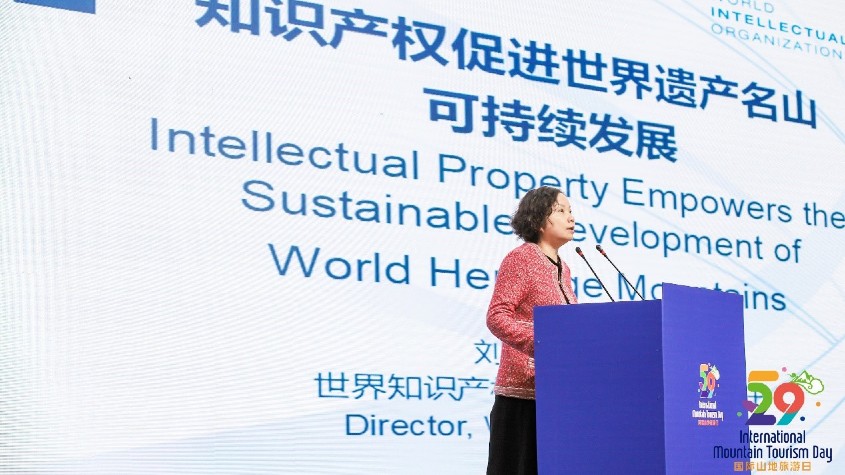IP Empowers the Sustainable Development of World Heritage Mountains
June 2, 2021
Themed Protection of World Heritage and Green Development of Mountain Tourism, the World Heritage Mountain Summit was co-hosted by the International Mountain Tourism Alliance (IMTA) and Nanchuan District Government in Chongqing on May 29. Ms. Liu Hua, Director of WIPO Office in China (WOC) was invited and delivered a keynote speech at the main Forum.

With the title of IP Empowers the Sustainable Development of World Heritage Mountains, Ms. Liu Hua elaborated on how to use WIPO as a gold knowledge asset to strengthen the protection of tourism resources and promote the sustainable development of tourism economy. She pointed out that in the post-pandemic era, the development of tourism is no longer dependent on mountains and rivers solely, but should explore the rich traditional deposits and profound cultural values behind the natural landscape, and create a new business form of IP tourism through the exploitation of intellectual property rights.
As a specialized agency of the United Nations, WIPO provides services to help industries use the intellectual property to acquire the innovation, competitiveness and creativity they need to achieve the Sustainable Development Goals, Ms. Liu Hua said. In promoting the development of tourism by intellectual property, it is not only necessary to use trademarks to build tourism brands, but also to make use of intellectual property such as geographical indications, industrial designs and traditional knowledge to empower the tourism industry. She encouraged the tourism industry to leverage WIPO's global IP service system, databases and cooperation platforms to further improve the quality of tourism service by creating tourism brands, developing GI products, innovating industrial designs and building cultural concepts, so as to expand the demand of tourism consumption and promote the sustainable development of tourism economy.
The IMTA is a non-governmental and non-profit international organization in China, which has 181 members from 32 countries and regions, aiming to preserve and promote mountain tourism resources for the sustainable development of the mountain economy.